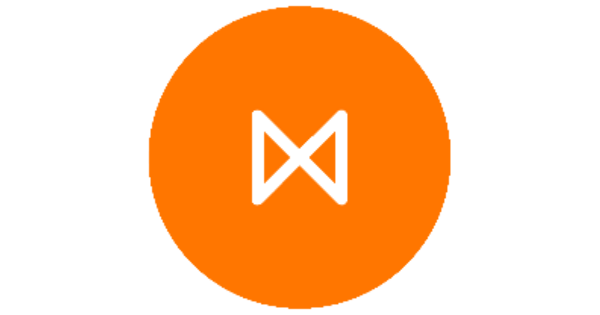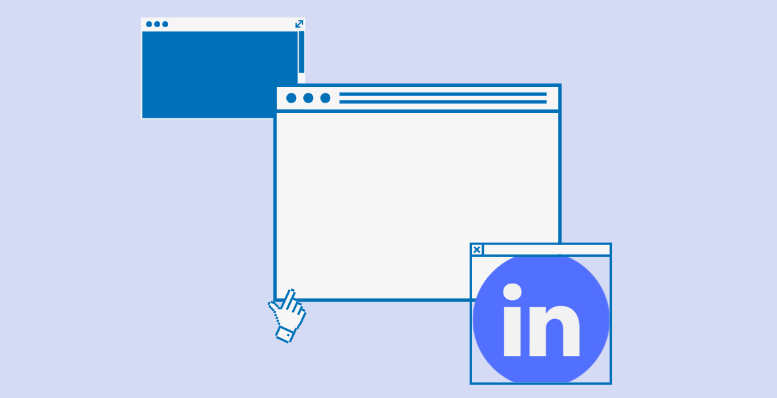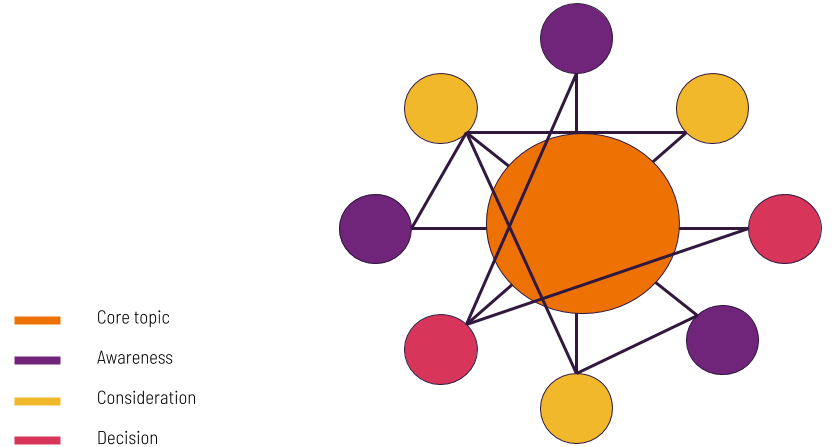“Your network is your net worth.”
I’ve been thinking of this quote a lot since recording this episode with my special guest Sam Mutimer, who is the founder of one of the first social media agencies; Thinktank Social.
Through breaking her leg in 2008 playing rugby, Sam became aware of the true power of social media and how it plays a role in branding and business as a whole.
Posting her injury on YouTube as advertising space for businesses to then ‘bid’ for, Sam’s video went viral and she has been experimenting with social media ever since.
In my conversation with Sam we focus on LinkedIn marketing and why “Your network is your net worth.”
We cover a wide range of topics including:
Brendan Hill: Sam Mutimer, welcome to the show.
Sam Mutimer: Thanks Brendan. Very excited to be here this morning.
Brendan Hill: We’re very excited to talk to you and we’ve known you for a while now and there’s a lot of interesting stuff that I know our audience is going to get super value from. But first I wanted to start off with the interesting story of how you actually founded Thinktank Social.
Sam Mutimer: Well, it is rather interesting, thank goodness for injuries that lead into opportunities. To cut a long story short, I used to be a secondary school PE teacher. I used to play rugby for England. I loved Australia because I used to watch Neighbors and I fancied Dr. Karl Kennedy. So, I was itching to get over here and check out Ramsey Street. Anyway, made time to do it and came over to Australia and fell in love with Australia but hadn’t seen mum and dad for a couple of years because I stayed here for a couple of years teaching and did some life coaching.
I went home and my rugby team said, “Hey, Sam we would love you to play a game of rugby again.” And I don’t know if you know Brendan, but most people would probably know like when you play rugby you have to be reasonably fit in terms of rugby fit strong and fast. Anyway, I thought, “Yeah, I’ve totally still got this.” Jumped onto the rugby pitch and I remember I got the ball within the first couple of seconds. And I’m like, “Yeah man, I’m so on form.” And one of the girls came in from the side and slide tackled me and snapped my leg in two which at the time actually it wasn’t that painful until afterwards. I think the shock kicked in, but it was the best thing that ever could’ve happened to me because it kept me bedbound for three months I couldn’t come back to Australia and I set up a bit of a lifestyle here.
So, I’d a had a couple of gin and tonics with my friends one day or evening, sorry. Delete. Undo. And I’d heard of social media, I’d heard of social media from a guy called Rob Hartner. I went to a small business festival and he’d mentioned something about Twitter back in 2007 which is really early on. So, I’d heard about it and I thought, “What can I do with my broken leg?” So, I wanted businesses to bid for advertising space on my broken leg just to see if this social media world really had like any impact. So, we did a video which we put on YouTube, which explained we wanted to put four business brands on my leg and the top bidders will go on there. And basically I hoped that the video would really go viral. I’d had a gut feel where there’s people, there’s opportunity, there’s growth, there’s money.
And so it was really like my first idea to be able to get it out there. So, I did the video. It was really bad, Brendan. I look back now and I really cringe, but I keep it up there of course for the story. But in terms of actually seeding it out, I thought, “Where can I seed out?” And of course Twitter popped to my mind. So, I’d reached out to people, which we probably now call influences that had a bigger following and had an audience and I wanted to get in front of and I just said, “If you think this is a value, can you please share it with your audience?” And I managed to lucky in with Darren from the BBC back in 2008 who shared it. And off the back of that more people shared it. So, I woke up the next morning, 27000 views on my YouTube channel. Which doesn’t sound like much now, but back then it was pretty fast growth. I had 6000 Twitter followers, had people coming in and bidding.
And I decided that I wanted to learn more about social media, like coming from a PE teacher background. I love education, love helping people get from A to B and love the psychology of online behavior and really studied it. And I found that people started to come to me for consultancy and advice and I’m like, “I’m loving this.” I love PE teaching, but I love this even more. So, back in 2008 we set up our first, I suppose it was an agency, we called it an agency, but it wasn’t, it was just me and a mate and built it. And here we are today in 2019 and heading in a very same, same but different direction to where we were back then.
Brendan Hill: So, can you tell me how Thinktank has evolved over the years?
Sam Mutimer: Yes. Really looking at where the audience attention is and ensuring that we’ll be able to communicate in meaningful ways to get them to do stuff. So, back in 2008 … Oh my God, we were building like Facebook apps. We built a Facebook app for Richmond Football Club to sell merchandise. So, very much in the dev space back then. And then Foursquare came. Don’t you remember Foursquare? Then we were looking at how we could get people to check in to raise the profile of restaurants. Then we decided … Oh, we actually brought Priceline on board onto social media. And that was so interesting around what resonates with the consumer. And then from there if there was Vine. I mean, God, things change all the time, right? It’s like not getting stuck on a platform. It’s really looking at where the audience is going and then using that platform to gain traction. So, who we are today in 2019 moving into 2020 next month, TikTok, LinkedIn, Insta, not so much Facebook in terms of the channels, a lot of influencer marketing, lots of more personal brands are growing now than ever before, whether it’s professional athletes or CEOs. Even people coming out of their university career building their brands get their first job of choice.
Brendan Hill: Wow.
Sam Mutimer: It’s an interesting space.
Brendan Hill: It’s super interesting. What are you focusing on in 2020? I know that you’re doing a lot of work with personal brands, you’re doing some LinkedIn work, you’re even working with the eSports industry as well.
Sam Mutimer: Yeah, more so the in the gaming space. E-sports interests me, but I’m really looking at a broader view of the gamer. The 13, 14 year old, 15 year old that plays Fortnite like the psychology of that individual. And I really do see a massive space for brands to really start to enter into that market. I’ve been studying it now probably, or watching it the last year and a half, just the psychology. And there is a huge opportunity for a brand to be able to enter into the space. But I believe it’s very different to entering into a different space that they used to. It’s a different market.
Brendan Hill: Interesting. I know you’re doing a bit of work with LinkedIn live streaming. Can you tell us a bit more about that? I haven’t really dabbled in that area yet.
Sam Mutimer: Yeah. So, actually Chris Smith from BIG Esports, he enthused and educated me to take more of a look into LinkedIn life. And he was running a series of sessions, which are little bit like this but live and it’s a little bit clunky to start off with, but we really saw right now based on the fact that LinkedIn is so beautifully viral, and organic, should I say, that it was a good opportunity for personal brands such as CEOs to get interviewed on there to show that they’re relatable, transparent, and obviously that would link them back to the brand. And since Chris has been running those shows and other people have, and I’ve been bringing guests onto people’s LinkedIn live shows, we’ve really started to see traction around the individual, which then links back to the brand. And lots of questions coming in the first month or two it was a bit clunky and it still is, and I know LinkedIn will totally work on that with the feedback. But in terms of the reach and the new audiences we’re attracting right now with our individual personal brands that we’re working with, it’s a very easy space to work in.
Brendan Hill: That’s interesting. So, if there’s any early stage business owners listening right now, what steps do they take to kick a LinkedIn live streaming campaign off?
Sam Mutimer: You have to go through LinkedIn anyway and submit and they ask you questions like have you done a live before and send some examples through and so on and so forth, and then they’ll either approve to do the live or not. So, there’s a set of criteria, which I’m not 100% sure what that would be. Early when it first got launched, it looked like there was a lot of people jumping on board, but now it seems to be a bit more slow in terms of the traction and turnaround time to open up your LinkedIn live show. But it’s certainly something that you should keep pursuing. It’s probably the platform of my choice right now in terms of being able to get attention and actually start to bring some results very, very quickly. In terms of Thinktank and our growth over the last year has purely been through LinkedIn.
Brendan Hill: Wow.
Sam Mutimer: I’ve been using it as a social selling tool, storytelling, reaching out to CEOs that I never would have been able to reach out to before because more and more people are now joining LinkedIn. I see the importance of it.
Brendan Hill: Can you tell us a quick story of one of those CEOs that you’ve reached out to on LinkedIn and what’s happened as a result of that?
Sam Mutimer: Yes, I can. The superannuation space, I’m really curious about it. How to engage members and employers through social channels, through storytelling. I looked across the board and I didn’t really see super back then doing a good job and I think there was massive opportunities and I just thought I need to come in and showcase how they could better use social, making it relatable, be relatable to your members. You don’t have to talk super all the time and because of my enthusiasm and my passion I suppose to really enter into a space and show there to be opportunity, I reached out to a few CEOs on LinkedIn and did my due diligence and my research prior had to take a few times to really get, I suppose, an answer. But I didn’t use LinkedIn premium. I’m very much about hustling in the trenches by really not leveraging LinkedIn premium and being really, really creative around the words you can choose to use in a note section on LinkedIn, which by the way, you can only use on desktop at this stage.
So, on mobile you can just connect but not add a note. But this is 2019 December by the way, might change next year. So, I went through and added a note and had a compelling reason why they should connect up with me, which they did. And then they didn’t respond for a bit. So, I went back and forth three or four times. I’m not going to take silence for an answer. And then I think I said to him, this is a CEO of a super fund, “What would it take for me to grab 30 minutes of your time?” And he came back and said, “Hey Sam, sorry for you know, being so slow response, I’m in Melbourne, I’d love to catch up.” And now we’re doing business with them.
Brendan Hill: Wow.
Sam Mutimer: It just shows if you really want something bad enough you’d always find a way to make it happen. And if you’ve got a compelling reason why they need to pay attention to you, then happy days. And LinkedIn is a very easy way to use that right now. Oh, there’s one more thing as well on LinkedIn, which I share with lots of people and they didn’t know about it. The actual feature where you message using audio.
Brendan Hill: Oh, really?
Sam Mutimer: Yeah. So, I’ve been using it recently just because then you get a bit more of a sense of who that person is, their tonality, how they come across. And lots of responses have come back including Tony Nash from Booktopia because I wanted to interview him and he was like, “Wow, I didn’t know that function existed. And that caught my attention.”
Brendan Hill: Yeah. So, how do you do that? Is that mobile only or is that desktop as well?
Sam Mutimer: Mobile only.
Brendan Hill: Right.
Sam Mutimer: But it’s as you message, it’s just got a microphone to the right. So, you just hold the microphone down and talk.
Brendan Hill: Interesting. So, just a direct message on LinkedIn?
Sam Mutimer: Yep.
Brendan Hill: Oh wow.
Sam Mutimer: So, once you got the connection in, as opposed to writing another note, use audio.
Brendan Hill: I’m going to do that today.
Sam Mutimer: Test and learn, test and learn. And lastly, I’ve put the business cards aside. I’ve said to a lot of the CEOs we’re working with in the personal branding space, “Stop giving out business cards, we need to start to scale your online reputation right now and let’s do that through LinkedIn.” So, on LinkedIn you’ve got a QR code and so then when they’re at events, they share the QR code and you scan the QR code immediately, then you’re connected. And usually that person that you’re connected with doesn’t know about the QR code. So, then you’ve added value there too.
Brendan Hill: Yeah.
Sam Mutimer: So, that’s working really well.
Brendan Hill: I’m a QR code evangelist on LinkedIn as well.
Sam Mutimer: One more LinkedIn, sorry. The other feature it’s called In The Room.
Brendan Hill: Right.
Sam Mutimer: So, again, like a lot of athletes that we represent and CEOs that are out doing speaking gigs, they can actually say to people, “All right, jump onto LinkedIn.” So let’s just say there’s 50 in the room. Turn on anyone in the room feature everyone does and then everyone in the room comes up and you can just connect.
Brendan Hill: Nice, nice.
Sam Mutimer: That’s another one as well.
Brendan Hill: And what does the flow look like after you add someone on LinkedIn? They’re a warm lead now. What do you do with them then? Then what does that journey look like?
Sam Mutimer: For me it’s the romantic journey of liking some of their posts if they’re posting or sharing an article, making a comment. Don’t go straight in with can we catch up? And really starting to understand where they’re heading, their vision, and then probably after five, six, seven weeks, I know it’s a long time, but then I do have quite a few that I’m going through. I’m really confident certain of the value that we can bring them and then I’ll reach out for a coffee. But it’s really getting to know them at this stage.
Brendan Hill: Yeah. Oh, that sounds interesting.
Sam Mutimer: Everyone is approachable guys on LinkedIn. Really.
Brendan Hill: Yeah. Even the upper tier.
Sam Mutimer: We’re speaking with Jeremy LaLeega who is the commissioner of the NBL and I reached out to him cause I thought this guy is incredible in terms of what he’s done for the sport. He’s out on speaking circuit. I need to find a way. I messaged him two years ago … year and a half, two years ago and nothing. Messaged him again, nothing. And then randomly three weeks ago he got back to me. I’m like “All right, straight in for a coffee.” And hopefully there’s now some opportunities to do business with him individually as well.
Brendan Hill: Oh, amazing. And there are many uses for LinkedIn, Sam and I know that you used it for a very special use case recently.
Sam Mutimer: Well, actually I was using it for prospecting and I’d reached out to this person because he’s working at the brand and one to work with. And we got chatting and I thought this guy really knows his stuff and he was really interested to know more around where we could bring in social. Next minute we have put up for a coffee. Next minute we’ve got out for a wine and dinner. Next minute, two and a half years later, he is my partner, Andrew.
Brendan Hill: Wow.
Sam Mutimer: Maybe shouldn’t have said that. You can edit, delete, undo, that bit. LinkedIn is not a dating site.
Brendan Hill: So, no need for Tinder or any other dating apps. Just straight to LinkedIn.
Sam Mutimer: You’ve got all the information on that person and more.
Brendan Hill: So, one of the new social media platforms that you mentioned earlier was TikTok. So, super interesting. I mean, they’re from China, they have a really complex algorithm. I was doing a bit of reading about it before. I’ve had a bit of a play. It’s a bit full on. What are your takes on tick talk and is it going to be a major player in 2020 and beyond?
Sam Mutimer: At this stage? Yes. I always look at the app downloads. I think it was number one last week and there’s more, more people piling on more than ever before. We worked with Caroline Buchanan, she’s a professional athlete. She’s getting more followers now and very, very quickly getting the growth in that market around the content she’s putting up there as opposed to Instagram or Facebook, which are a lot slower to get cut through. Just seems like there’s a whole bunch of different ages on there, from 13, 14 to old grannies and everything in between. You just make really cool content and it puts the content creation back in the consumer’s hands.
Brendan Hill: And what are the best ways to get started on TikTok?
Sam Mutimer: Download it, watch what other people are doing, notice what captures your attention and look at some content that you’ve got maybe on Insta stories that you could integrate in.
Brendan Hill: So, you can repurpose your existing Instagram content?
Sam Mutimer: Slightly. You have to make it more for that channel. It’s a lot more entertaining that channel.
Brendan Hill: Yeah, right.
Sam Mutimer: But look at some of the music that’s trending. Isn’t it That Old Road, I can’t remember the song now, what’s that? Old Town Road. Old Town Road?
Brendan Hill: Yeah.
Sam Mutimer: That came from TikTok.
Brendan Hill: Oh, wow.
Sam Mutimer: Yeah. And then it trended and then they launched it.
Brendan Hill: Wow. I don’t know what song you’re talking about.
Sam Mutimer: I’d have to play the song.
Brendan Hill: Cool, cool. So, you’ve touched on storytelling a lot. It’s obviously very important, very important for your brand and your company as well. How can early stage businesses start to tell their story? What steps should they take?
Sam Mutimer: Great question. Really understanding obviously the value of the business, what the business is, what it stands for, but also storytelling is really powerful for the individual. We’ve got to remember that people resonate with people, right? So, if you can story tell through your individual LinkedIn account and then associate it back to company and brands or through Instagram, same thing, more documentary style. Just being yourself and really not having too much judgment about what people think. If you really know you’ve got a really rock solid product or service, go out there and make some noise about it. I think a lot of people hold back a fear of judgment. But again, if you’ve got a good product and service go there because other people will and you’ve got to make some noise and valuable noise. So, the other strategy that I’d recommend as well would be around your client or your customer getting them to give their testimonial or how it’s impacted their workflow on some level.
So, really getting curious about the impact that your service or products had on the end consumer as well. I mean, it’s great what you’re doing Brandon, around podcasts, get curious, start interviewing people, hear their stories and be relatable to your target market. Talk their language, get into their heads and build trust.
Brendan Hill: Definitely. Definitely. Circling back on the testimonials now, sometimes I find it hard to get testimonials from customers. Are there any certain ways that you’re able to get these testimonials from these companies?
Sam Mutimer: Yeah, well, I just ask.
Brendan Hill: Just ask.
Sam Mutimer: Let’s say for example, I’m really focusing on building up my LinkedIn recommendations at the moment. After an event or a workshop, I’d say, “If you found it of value, I’m really looking to grow my recommendations at the moment and we want to build our brand further and I’ve just moved into a CEO position.”
Whatever story you tell and most times they will happily say yes. We’ve just interviewed a whole bunch of real estate agents around what we’ve been doing with personal branding and to start off with, they’re a bit hesitant, but I just said, “You’ve got to put yourself out there as well, right? You’re a real estate agent and we’ve built your personal brand and you’ve received value and now it’s time to be a bit uncomfortable, but we’re going to support you through it and you’re going to be able to grow through your content that you’ve given to us, which we’ll put advertising spend behind that will then grow you.” There’s many different ways of doing it obviously.
Brendan Hill: Why do you think people don’t want to put themselves out there? Why are they uncomfortable?
Sam Mutimer: Because we live in Australia.
Brendan Hill: Is it something that you’ve found coming from the UK to Australia?
Sam Mutimer: No. You see, in the UK you’ve got to put yourself out there because … what is it, the same amount of people in London and what there is in Australia I think, or close to. Don’t quote me on that. So, you have to make a noise but you can’t just make a noise you have to make a really strong and compelling noise. And so when I came over here, I found it pretty easy to grow quite quickly because I didn’t really care too much about what people thought apart from what I thought and what I could bring to the table. Of course, I took on board feedback and tweaked and changed it. But if I didn’t do it someone else would be. So, you got to be hungry for it. Let go of the judgment.
Brendan Hill: So, going back to Thinktank Social now. So, you guys have evolved a lot over the last 10 years since you founded it. Can you talk a bit more about investing in your team? Because I know you have an amazing team now that you’ve built up over the years and how your business has evolved.
Sam Mutimer: Yeah. I wish I knew what I did today, but it doesn’t everyone 10 years on for growing their company? Since I’ve been investing more into my team, my company is pretty much doubled.
Brendan Hill: Wow.
Sam Mutimer: Back in 2009, 2010 I was very much hunting for the sale. Of course, that’s all still important and more on profit results, but not really investing into my people. Just, I suppose I saw them as, “Well, you’ve got a job and you need to execute upon it.” But now when I heard something from … I don’t know what podcast it was, but someone who was running a company said that employed someone called Head of Heart as opposed to HR or Chief Head Of Heart.
Sam Mutimer: And I’m like, “I bloody love that.”
And to scale any business, what I know now is you’ve got to invest in your people. So, I brought someone in like Head Of Heart, who’s really nurturing my team. I’m working individually with my team on their personal brands. So, what that means is they then are obviously talking on behalf of the company, but both … Well, the two that I’m working with at the moment are going out there and getting opportunities as well and fulfilling their goals. But then that’s bringing back more to Thinktank Social. And whilst doing that, they’re going through the process of understanding how I work with an individual to grow their personal brand.
So, they’re kind of training as well as executing and doing. It’s a win, win, win. And that’s really just see my team step up.
Brendan Hill: Yeah. That’s awesome.
Sam Mutimer: Yeah.
Brendan Hill: So, from the highs to the lows now.
Sam Mutimer: So many.
Brendan Hill: What’s the one thing that you wish you are more of an expert on in marketing right now?
Sam Mutimer: Oh, more of an expert. Okay. I thought you going to say talk about failures and stuff.
Brendan Hill: We can talk about that soon.
Sam Mutimer: More of an expert on. Great question. Well, I’m learning in the gaming and eSports space, like more around psychology, where that’s heading and so I’m not there yet. Also, I don’t know if I’d say marketing as a whole. I want to be more of an expert on how to empower people. So, I heard this quote once, “Would you rather be a kings or a maker of kings?” Definitely. When I first got started in business, I wanted to be a king and I was very ego-driven. Now I want to be a maker of kings.
Sam Mutimer: I believe I am, but I’m really learning how to empower my team to step up and be a better leader. So, that’s the space I’m really focusing on now as opposed to marketing and new technologies. I’m aware of them and I always will be, but it’s all about people for me right now.
Brendan Hill: And what about your failures? Have you learned any big lessons from big failures over the last 10 years?
Sam Mutimer: Yeah, huge ones actually. Don’t move too quick. Quick is bad. I grew another agency three years ago, managed to get some investment money in pretty quick. Like, “This is easy.” But didn’t do my due diligence on my investor. And unfortunately that came to an end when the money dried out and I’d poured a lot of money from Thinktank Social to be able to keep the agency going.
And Brendan, it was awful. I had to look at people in the eye and terminate their contracts effective immediately. And they bought into my brand and my vision and it was a biggest learning curve ever. But what it did give me, because my other agency started to really drop, was the fact that I know I can always turn an agency around. It gave me even more desire to win second time round. So, from a bad situation like that, I’ve learnt now that … I move pretty slowly, I think I’ve heard a quote, “Look like you’re a Hare and a tortoise is body.” I do my due diligence. I’m a lot more open to understanding people’s opinions, but then I’ll make my own decisions based on that. Whereas in the past I just was like, “Oh, that person’s right. Let’s go over here. They backed me, they believe me. It’s go time.” That was so 2007.
Brendan Hill: That’s interesting.
Sam Mutimer: One of the interesting years of my life, but now it’s much better. Not 2007, 2017 sorry.
Brendan Hill: Yeah. Interesting. And moving on to tools now, are there any tools that you use for marketing, $100 or less, that have made a big impact over the last couple of years?
Sam Mutimer: Not a massive impact, but Linktree has been pretty good for us in terms of being able to have a whole bunch of different campaigns and competitions going on, direct to website, link in bio on Instagram, and we’ve used it on LinkedIn as well. That’s actually been really good in terms of being able to get traffic to the right places, especially for Instagram.
Brendan Hill: Yeah, no, it’s a great tool.
Sam Mutimer: And free to start off with. Freemium premium.
Brendan Hill: Yeah.
Sam Mutimer: What else? Gosh, that’s a really good question. I wish that I would’ve thought that through before. I’m just looking at my phone now guys looking at all my apps.
Oh, yeah. Preview is pretty good.
Brendan Hill: That’s for Instagram?
Sam Mutimer: Yep. So, we’ve found that to be pretty good as well. Obviously, Metigy.
Brendan Hill: Oh, Metigy. Yes.
Sam Mutimer: That brand there. Very smart. But I’m probably one for my team over me. Oh no. There’s another one called StoryBoost. That’s a good app as well. StoryBoost. So, it creates templates for Instagram.
Brendan Hill: Oh, right.
Sam Mutimer: That’s a good little app that we’ve been using.
Brendan Hill: Oh, awesome. And I can put all of Sam’s apps in the show notes that you guys can find at Metigy.com/podcast.
Sam Mutimer: Can I just add one more, Brendan?
Brendan Hill: You can.
Sam Mutimer: Pixel Loop. So, what it does, and so many people have asked me how I’ve done this to my content is, for example, let’s just say you’ve got a background behind you of either waves or clouds. It’s like a cinemagraph. Well, it is probably a cinemagraph.
Sam Mutimer: So, it looks like the clouds are moving, but the picture’s still.
Brendan Hill: Right, right.
Sam Mutimer: It was $79 for the year and it just has captured people’s attention as they’re scrolling through the newsfeed.
Brendan Hill: I’ll check that one out, too. Sounds interesting. And you mentioned that you had to do a lot of learning after you broke your leg and you started Thinktank. Was reading a big part of that? Did you read many books or do you have any books that you can recommend to the audience?
Sam Mutimer: Yeah, that’s a really great question. I hated reading. I’ve learned to enjoy it now more, but I definitely listened to a lot more podcasts, but back then I was just surrounding myself with people that were doing better than me and that doesn’t just have to be a business that was in life and just being really curious, I suppose, to how they’re propelling forward so quickly or what are some of the things that they’ve failed on the I could learn from. Yeah, it wasn’t really reading books, but I was putting myself out there and going to events and speaking to people and going out and coffees and learning from them. Probably over the last couple of years I’ve now been writing a lot more. The Subtle Art of Not Giving A F*ck was a book that is quite controversial. I really got a lot out of it. Just around the fact that you can’t be happy all the time. And I used to think you could just through a different way of me thinking. Yeah.
Brendan Hill: And what podcasts are you listening to at the moment?
Sam Mutimer: The No Bullshit Leadership Podcast by Martin Moore. And the reason I’ve listening to that is because he’s a CEO that’s been incredibly successful and now he’s run his own podcast series and he does sessions on leadership and change management and millennials. And I’m also listening to another one with Rob Hartnett and he’s just launched a book called, It’s All Possible and has been in the leadership game for a long time. So, all my podcasts are around people and leadership and human behavior at the moment.
Brendan Hill: Awesome. And how do you use the learnings around human behavior in your everyday work?
Sam Mutimer: Since listening to some of those podcasts I think even when I walk into Thinktank, I have a different demeanor about me. I’m very energetic and all over the place, but walking a lot calmer, listen a lot more. And be interested, not interesting to people and ensure that everyone feels a part of a journey now as opposed to a role. This is how you, you, you as a team, because our hashtag is OneTeam. It’s going to help us all to get to where we want to be next year. And I’ve learned that from listening, but then taking action.
Brendan Hill: And what is the end goal?
Sam Mutimer: Great question. I’ve set it up like I’m going to sell it of course, but I don’t know if I will sell it just yet. What I do know, and we had a conversation before the podcast, I know that we’re so much more than an agency.
We’re not just a social media agency anymore and we’ve already started to grow out of that in terms of where we’re heading. You know, it’s people, it’s partnerships, it’s strategy, it’s training, it’s education, consultancy, advisory. The content production is important, but there’s so much more to it that we can now provide. And I suppose it’s your network is your net worth, right? We’ve got a good network now. We’re worth a lot of opportunities for the different brands we work. So, we bring a lot to that table now. So, we’re thinking we’re more of a growth catalyst. We haven’t come up with the words.
Brendan Hill: Yeah, that’s exciting.
Sam Mutimer: Maybe you can help with some of the listeners.
Brendan Hill: Very exciting. So Sam, just wanted to thank you again for providing so much value today on the podcast. You can find all of Sam’s show notes at Metigy.com/podcast. But before I let you go, there’s one last question that I like to ask every guest on the pod cost. So Sam, are you ready for launch?
Sam Mutimer: So ready, so excited.
Brendan Hill: Because you’re on the first flight to Mars with Elon Musk in the first settlers aboard the Space X starship rocket. So, what business do you start when you land on Mars and how would you market it to the new Martians?
Sam Mutimer: Oh, great question. Well, I would create a business that focused on educating everyone around self-awareness more. So, what’s possible and a business that’s a personal development business really that then leads to professional development. So, teaching people how to best communicate, which then we will communicate to the Martians around the school that we’re actually creating, which is around making the Martian smarter and more self aware and helping them get what they want and then we get what we want. So, everyone’s smarter and more caring and considerate of each other.
Brendan Hill: Very good answer. Any name for this new venture?
Sam Mutimer: People First.
Brendan Hill: Martians First.
Sam Mutimer: Oh, yeah. Martians First. I’m sorry. That’s it you’re fired.
Brendan Hill: So, once again, Sam, really appreciate your time today and the value of dropped to the audience. Is there anything that you’d like to say before we wrap up and how can people find out more about Thinktank and your journey as well?
Sam Mutimer: Cool. Well I think there’s one thing I need to say and it is always to keep green and growing as opposed to ripe and rotting. You may think you’ve nailed it. When you think you’ve nailed it, you’ve not nailed it because someone else will come and nail it more. And you can find us at ThinktankSocial.com.au. If anything, guys come and link up with me on LinkedIn. That would be my preference. Definitely check out the website and the company, but Sam Mutimer on LinkedIn. Let’s get connected. I’m sure there’s business on the table on both sides.
Brendan Hill: And send Sam a LinkedIn audio message as well to get her attention. I know I’m going to be hitting that off later today as well. So, Sam, thanks again. It’s been fun.
- Not getting stuck on one platform, looking where the audience is going.
- How to use LinkedIn to get in front of people that you would never think possible
- How to use direct audio messages on LinkedIn to increase conversion and introduce your personal brand (I’ve tried this since recording the episode – it works!)
- The flow Sam uses to nurture new connections on LinkedIn before asking to catchup in person
What you will learn in this episode
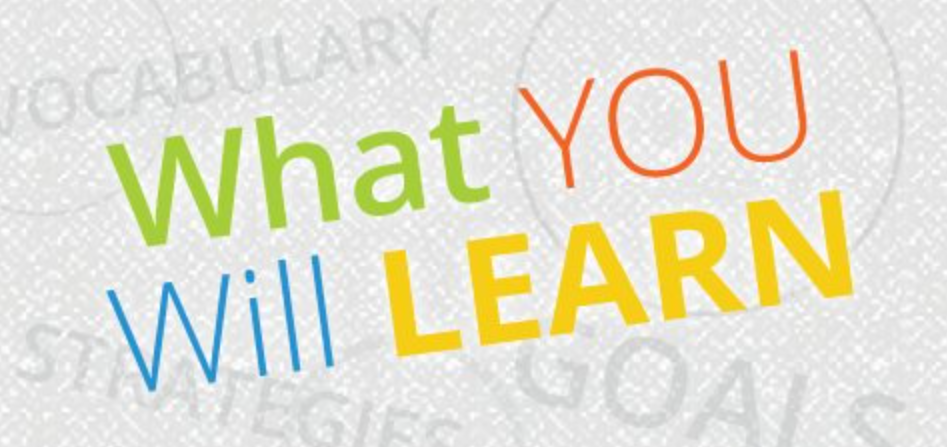
- Don’t get stuck on one platform, look where the audience is going.
- How to work with the esports industry
- Sam’s first experiences with LinkedIn Live and how this can help your brand
- How to start your first LinkedIn Live campaign
- Why LinkedIn is the platform of choice for growth
- How to use LinkedIn to get in front of people that you would never think possible
- How to use direct audio messages on LinkedIn to increase conversion and introduce your personal brand (I’ve tried this since recording the episode – it works!)
- How replacing your business cards with the LinkedIn QR code feature can scale your online reputation
- The flow Sam uses to nurture new connections on LinkedIn before asking to catch up in person
- Is LinkedIn the new Tinder? How Sam met her partner on LinkedIn!
- Sam’s thoughts on Tiktok as a marketing tool in 2020 and beyond
- The best way to get started on Tiktok
- How to get testimonials from customers and why they are important
- Why Sam works with all of her team members on their personal brands
Resources mentioned
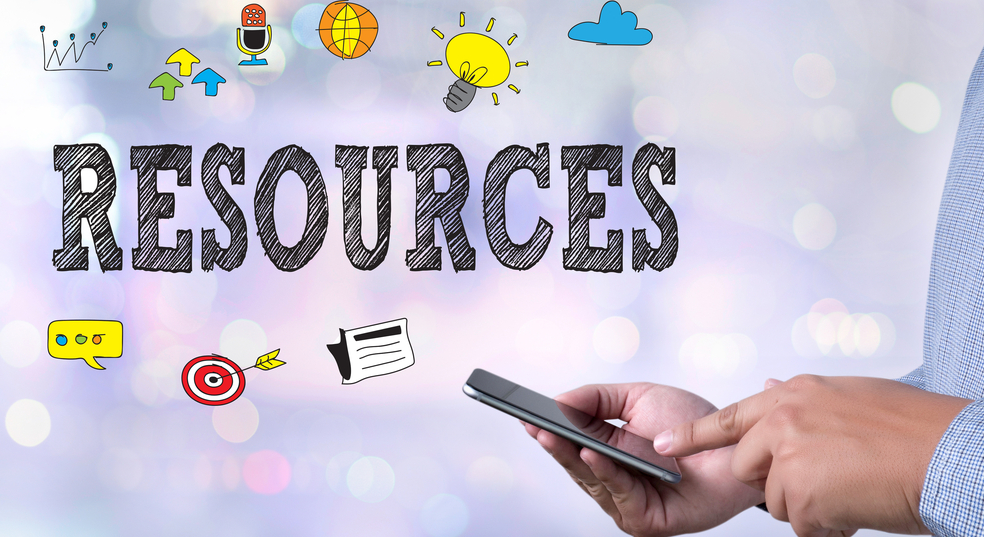
Book Recommendation
The Subtle Art of Not Giving a F*ck by Mark Manson It’s All Possible by Rob HartnettWhat business would you build on Mars?

Get in touch with Sam
Sam Mutimer on LinkedIn Sam Mutimer on TwitterTranscript
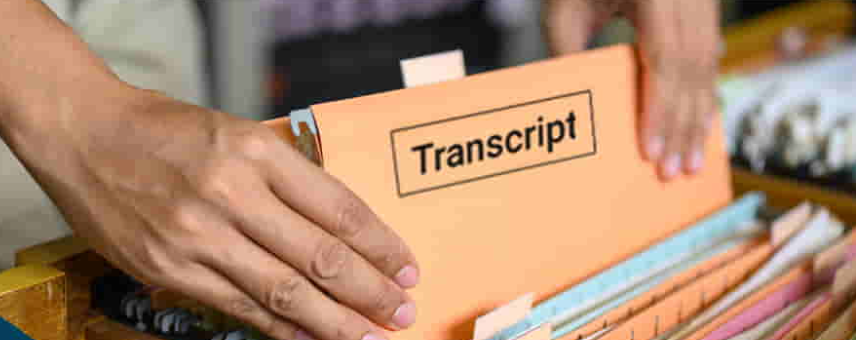
Table of Contents
Toggle